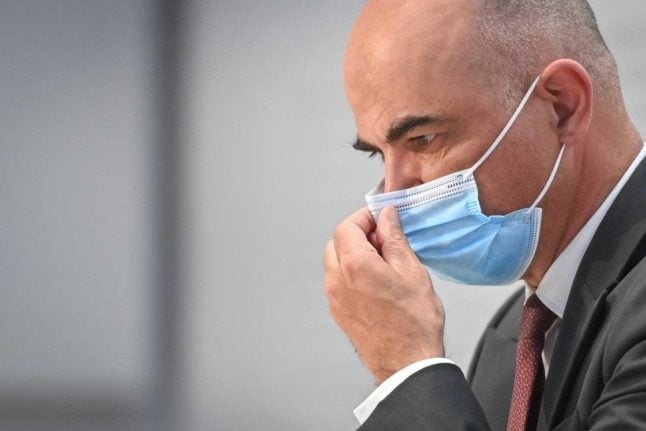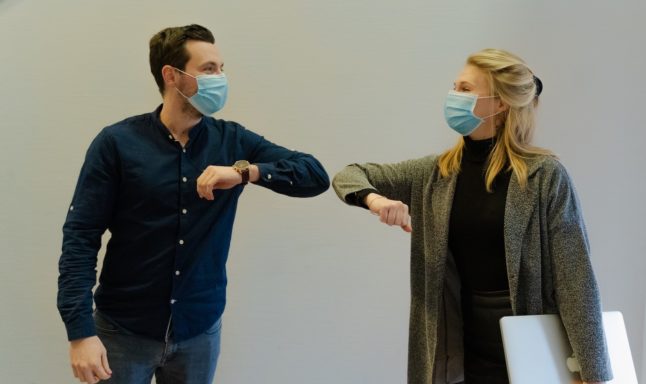Just two days after a nationwide referendum where voters backed the government’s powers to make Covid rules, Switzerland’s Federal Council has flagged a range of new Covid measures.
The Federal Council said tighter rules were clearly needed, with rising case numbers and dwindling hospital capacities creating a “critical situation” in the country.
‘Critical situation’: Switzerland’s new coronavirus hotspots
“If the development continues at the rate of the past few weeks, a nationwide overload of the intensive care units cannot be ruled out,” the government said in a press release.
The concern is also fuelled by the newly discovered Omicron virus variant.
“There is a risk that the previous vaccines will be less effective and that a previous infection with SARS CoV-2 will provide less protection against renewed infection,” the government said.
The measures, which were approved by the Federal Council, have now been put out to the cantons for consultation, with a final decision to be made on Wednesday, December 1st.
These are the draft measures.
Covid certificate for private meetings
Private meetings – including those with family and friends – with more than 11 people are limited to those with a Covid certificate.
READ MORE: How will Switzerland enforce the Covid certificate in private homes?
Lower limit for public and private events
The government also forecast a lowering of the number of people for events requiring a Covid certificate.
Indoor events of all types will require a Covid certificate, whereas this requirement currently only applies to events with more than 30 people.
Outdoor events will require a Covid certificate when there are more than 300 participants, down from the previous limit of 1,000.
Masks
Masks are required in indoor areas which require a certificate. In restaurants and bars, the mask does not need to be worn at your seat.
If masks cannot be worn during sporting activities and cultural events, a list of people’s contact details must be saved.
Reducing validity of tests
The Federal Council proposal includes reducing the duration of a PCR test’s validity for the Covid certificate from 72 hours to 48 hours.
Antigen tests would only be valid for the Covid certificate for 24 hours, rather than the current 48.
Working from home?
The Federal Council put forward three possible options to reduce spread in the workplace, with the cantons to decide on which measure will be required.
The first is to require masks in indoor areas at workplaces, provided more than one person is in the room.
The second is making working from home compulsory for those who have not been vaccinated and have not recovered from Covid.
If these people cannot work from home – i.e. bakers – then they must wear a mask at work at all times.
The third option is to require everyone who can work from home to work from home, regardless of vaccination status. Those who cannot work from home, need to wear masks at all times.
Testing in schools
Testing on a repetitive basis must take place in compulsory schools and upper secondary schools.
If approved by the cantons, these measures are set to expire on January 24th, 2022, although they can be extended.



 Please whitelist us to continue reading.
Please whitelist us to continue reading.
Member comments